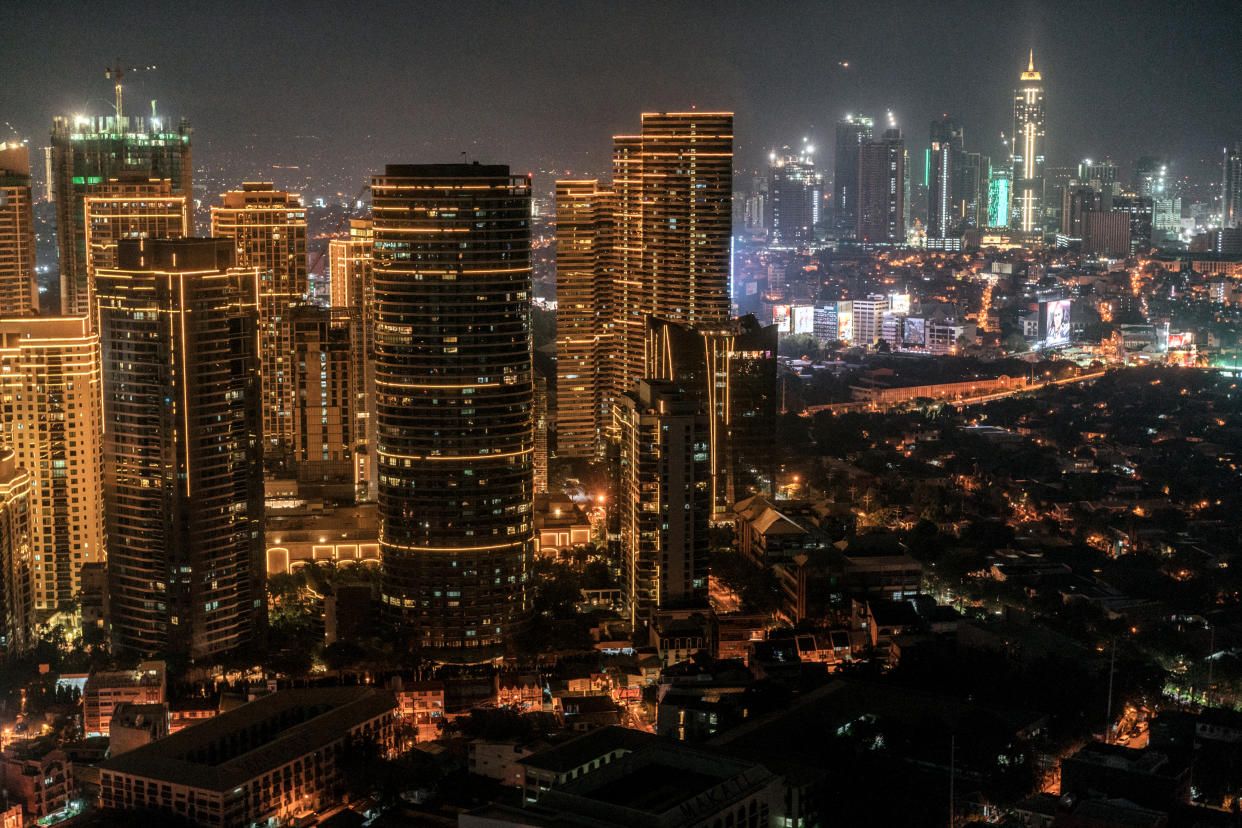Xi’s Manila Visit Expected to Yield Deals Worth Billions

By Andreo Calonzo
Xi Jinping is expected to seal billions of dollars worth of deals during a trip to Manila starting Tuesday as Philippine President Rodrigo Duterte’s administration shrugs off U.S. warnings about accepting Chinese cash.
Xi’s two-day trip marks the first state visit to the Philippines by a Chinese president in 13 years. Philippine officials say dozens of agreements will be signed on everything from infrastructure to trade to security, building on $24 billion in investment pledges made two years ago when Duterte visited Beijing.
The visit reflects warmer ties that began when Duterte took office and pivoted toward China and away from the U.S., a longstanding defense ally. Since then, the Asian nations have made progress on reaching an agreement to jointly explore for energy in a disputed part of the South China Sea, an issue that roiled ties between Beijing and Duterte’s predecessor.
“Given the profound and complex changes in the world, good-neighborliness and friendship is the only right choice for China and the Philippines,” Xi said in his statement upon arrival in Manila shortly before noon local time. He said he looked forward to discussions with Duterte on strengthening ties and world affairs.
Xi’s trip is taking on even greater significance given it comes shortly after the Asia Pacific Economic Cooperation summit ended without a joint statement for the first time due to simmering U.S.-China trade tensions. Vice President Mike Pence attacked China at APEC, calling on member states to avoid loans that will leave them indebted to Beijing.
“We must take his statement with a grain of salt – of course the U.S. would not want the whole world to be dependent on China,” Philippine Budget Secretary Benjamin Diokno said at a forum in Manila on Monday. Pence’s statements don’t apply to Duterte’s government, which has a “rigorous process” to evaluate funding from Beijing, he said.
Indeed, much of the money that China has previously pledged has yet to come through. Few projects in the first batch of $24 billion have gotten off the ground, including a previous $780 million proposal to raise three islands from a waterlogged area of Duterte’s hometown, which was canceled last year after being found not commercially viable.
Chinese bureaucracy is having difficulty complying with requirements for projects in the island nation, Diokno said.
“I think with this visit, the projects will speed up,” he said. “We’re very optimistic that this will put pressure on their bureaucracy to speed up the process.”
The slow pace has been criticized by Duterte’s political opponents. Senate Minority Leader Franklin Drilon said the Philippine leader had adopted “a policy of appeasement” toward China and he hoped the loan deals wouldn’t be a case of “broken promises.”
During Xi’s visit this week, expected deals include a $2 billion Chinese investment to convert part of a former U.S. airbase north of Manila into an industrial park and $694 million loan agreement for a railway across the main Philippine island of Luzon, according to separate statements from government agencies.
The expected new deals are “a reaffirmation of the deepening relations between the Philippines and China,” said Chito Sta Romana, the Southeast Asian nation’s envoy to Beijing.
More Chinese companies are also looking to set up production bases in the Philippines as a way to elude trade tariffs imposed by the U.S., Trade Secretary Ramon Lopez said last week at meetings of the Association of Southeast Asian Nations in Singapore.
‘I Am Worried’
The Philippines won’t agree to “unreasonable terms” in any transaction – including with China, Lopez said at the APEC meetings. The costs of the deals with Beijing are “really reasonable or better than the others,” he said.
Duterte has brushed off concerns that he’s undermined Philippine sovereignty with little to show in return, saying close ties with the U.S. and Europe had previously failed to produce material gains for the country. He hasn’t challenged Chinese assertions that it controls the majority of the disputed South China Sea – a stance he once opposed.
At Asean, Duterte called on the U.S. to stop military drills near disputed areas, saying China is already “ in possession” of it. Pence last week said the U.S. supports a “free and open” Indo-Pacific and “will continue to sail and fly wherever international law allows and our national interests demand.”
“There’s friction between China and Western nations,” Duterte said last week, noting that the Philippines doesn’t want to see any miscalculation. “I am worried.”
© 2018 Bloomberg L.P


